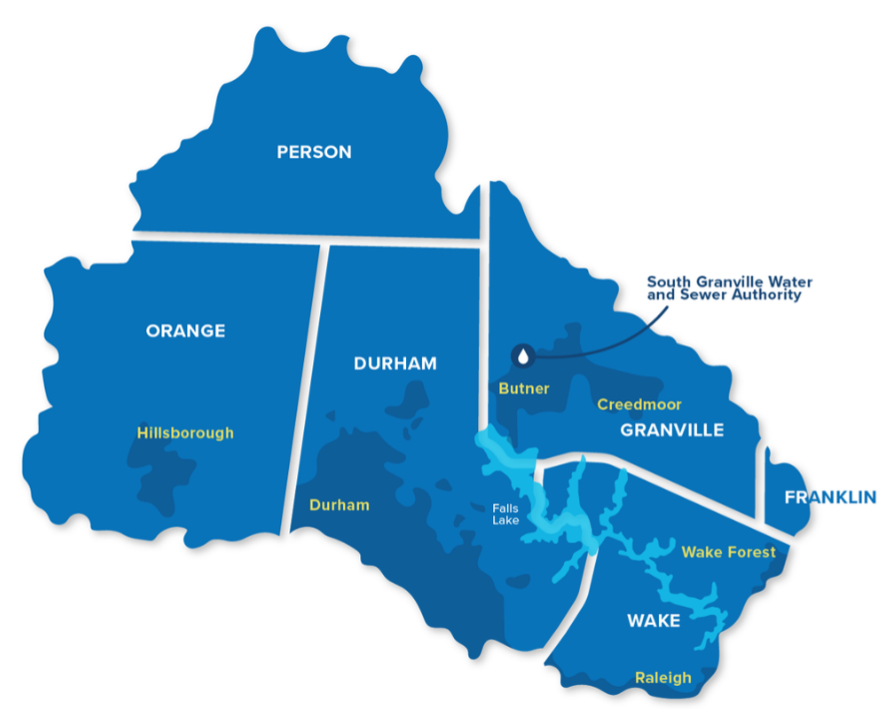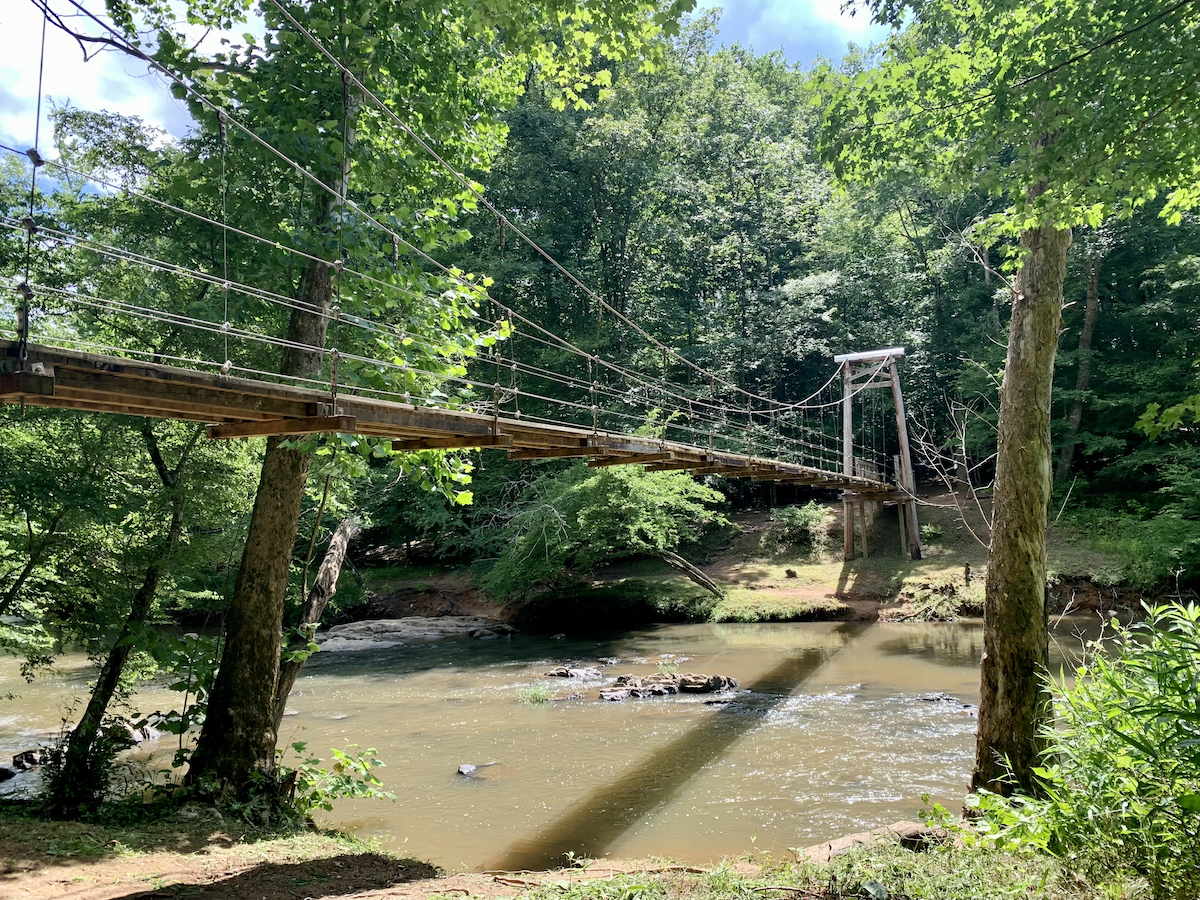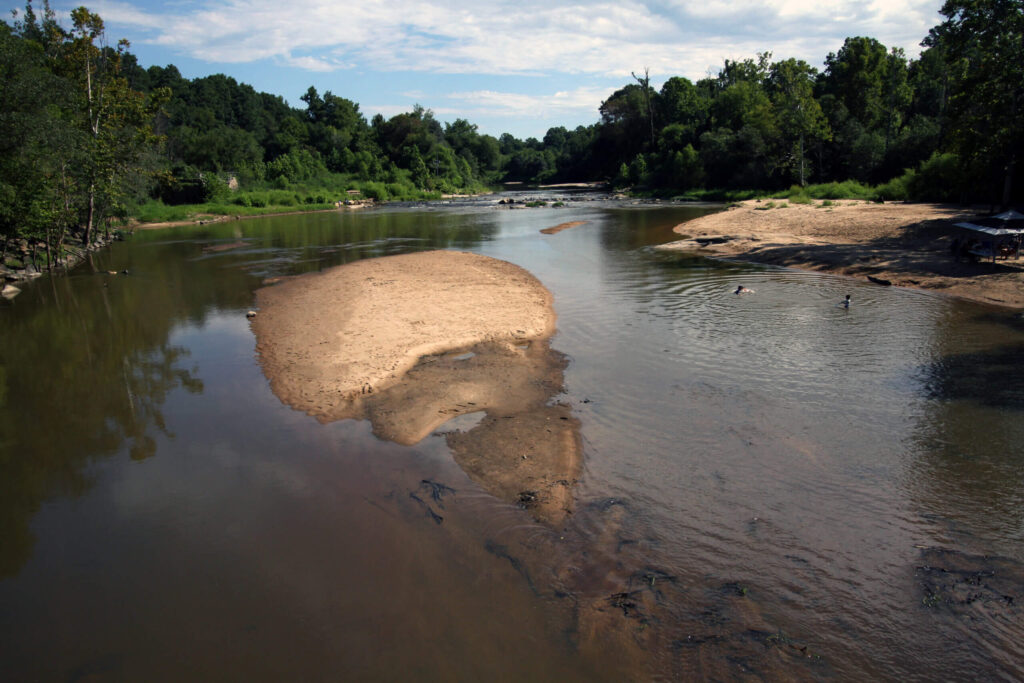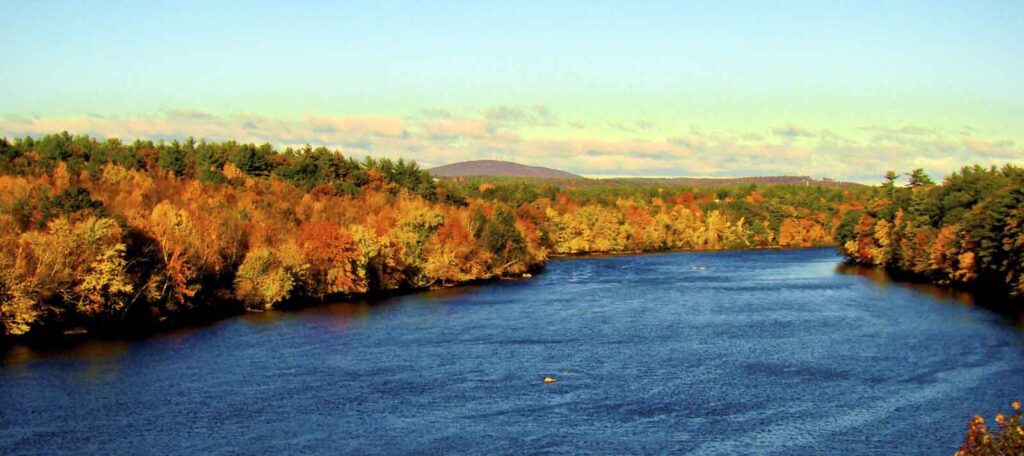Upper Neuse River Watershed Integrated Water Management
A framework for successful collaboration

The first step in developing a comprehensive water management system in the upper Neuse River watershed has been taken with the initiation of a new regulatory program by the NC Department of Environmental Quality with the support of the local governments of the watershed. The new program started in July 2021 will drive investment in projects that will improve watershed health and restore ecological function in the watershed.
The upper Neuse River watershed spans 770 square miles through North Carolina and serves as a vital environmental, economic, and social resource for the Raleigh-Durham region. Notably, the river basin provides water to over 600,000 residents, with supplies that are largely supported by Falls Lake, a man-made reservoir constructed by the Army Corps of Engineers in 1981. Formed at the confluence of the Flat and the Eno rivers, Falls Lake Reservoir’s primary purpose is to manage flooding in the Neuse River which begins at the base of the dam.

Water quality in the tributaries flowing into Falls Lake and the reservoir itself degraded over the past several decades due to the impacts of stormwater run-off and increased effluent from wastewater systems associated with population growth and land-use changes. Pollution reduction approaches for the Upper Neuse have existed in the form of the Falls Lake Nutrient Management Strategy (also commonly referred to as the Falls Lake “Rules”). Since approval in 2011, the Rules have addressed certain sources of pollution, such as wastewater treatment plant effluents, but have they have struggled to address the more complicated parts of watershed management, especially around pollution from existing development. This created the opportunity for a new alternative approach to restoring the health of the watershed.
In 2016, American Rivers- looking towards a new approach– partnered with the Upper Neuse River Basin Association (UNRBA), a coalition of the watershed’s local government officials, as well as NC Department of Environmental Quality and other non-government stakeholders to develop a management framework based on the principles of Integrated Water Management (IWM) to address the watershed’s pollution and sustainability challenges.
Early investments by the City of Durham, Town of Hillsborough, and Granville County Sewer and Water District to upgrade their water reclamation facilities (e.g. wastewater treatment plants) reduced pollution enough now to allow regulatory compliance flexibility within other areas of the law without concern about water quality impacts. The IWM system developed over five years of intensive discussions and negotiations, a pilot program known as the Interim Alternative Implementation Approach (IAIA), represents a mechanism for basin stakeholders to make cooperative, adaptive decisions around water resources management that can improve the water quality and long-term sustainability of a watershed.
In January 2021, the NC Environmental Management Commission (the state’s regulatory body) adopted updated rules for the clean-up of the upper Neuse River watershed implementing the new IWM program. This is the first time the state of North Carolina has approved a regulatory structure based in IWM.

This initial version of the program secured an investment of at least $1.5 million annually from local governments for projects that protect and restore the watershed- primarily stormwater management projects. The program includes the expansion of accepted practices for local governments to implement, such as water quality and quantity improvements projects focused on green infrastructure, protection of critical lands from development in the watershed, and floodplain, stream, and riparian buffer restoration. UNRBA members have stated that their investments will make pollution reduction progress more measurable, trackable, and transparent.
This IWM program represents the first of its kind in watershed management for North Carolina and can serve as a blueprint for other basins to utilize more holistic and cooperative approaches to tackle water quantity and quality challenges. By continuing to collaboratively utilize smarter policies, scientific data, and the region’s financial resources, American Rivers is working with the UNRBA members and other community partners to clean up the upper Neuse River watershed.



